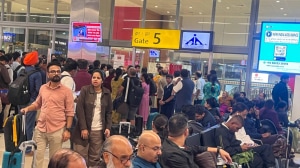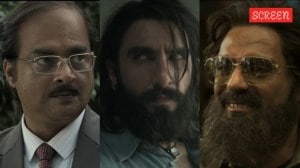No legal sanction to end one’s life — HC
KOCHI, JUNE 28: A Division Bench of the Kerala High Court today held that no distinction can be made between a suicide committed by a pers...

KOCHI, JUNE 28: A Division Bench of the Kerala High Court today held that no distinction can be made between a suicide committed by a person who is frustrated with life and voluntary termination of life by one who has achieved his life’s mission. Both amount to suicide.
The bench, consisting of Chief Justice A V Savant and Justice K S Radhakrishnan, dismissed the two controversial writ petitions filed by C A Thomas of Pavaratty (80) a retired teacher, and Mukundan Pillai (69) seeking legal sanction to end their lives.
According to the petitioners, their family is well-settled and they have no desire to live further. However, as law-abiding citizens, they do not want to commit suicide, which is illegal; but want to voluntarily put an end to their lives, which according to them is distinguished from a suicide, and donate their organs to those in need.
Thomas Master contended that death is the only certainty in life and hence a person who thinks that he has lived enough and is contented should have the freedom to choose the time and place of his death as as well as the method. The freedom to choose the method of one’s death is a part of the right to life guaranteed under Article 21 of the Constitution of India.
In ancient Indian and Chinese cultures, it was customary to permit voluntary death. He, therefore, prayed for a writ commanding the Government to startMahaprasthana Kendras’ or voluntary death clinics in each district hospital to facilitate voluntary death and donate body organs. He also asked that a commission be appointed to study the practice of voluntary death in ancient India and to suggest methods for its practice in the context of changes and technological advances.
The possibility of misuse or abuse of a right to voluntarily put and end to life and the exploitation on that count cannot be ruled out, the bench said. In the absence of any legislation in that behalf, no distinction can be made between suicide as ordinarily understood and the right to voluntarily put an end to one’s life as distinguished by the petitioners. In either case, it would amount to suicide and thus attract the provisions of 306 and 309 of Indian Penal Code. What the petitioners have overlooked is the possible loss to society when a person, who is otherwise physically and mentally healthy, wants to exercise his right to voluntarily put an end to his life. It may be that his family or society at large may stand to gain by his rich experience in life, the judges said.
R M Bhattacharya, director of the Ministry of Health and Family Welfare, had filed a counter-affidavit in the writ petitions on behalf of the Union Government of India, opposing the prayer in the writ petitions. According to him, a meeting of experts had been held to deliberate upon the issues raised in the petitions. It was decided that ethically everyone had the right to live but no right to die. No voluntary death clinic exists anywhere in the world. Euthanasia is not provided under law.The experts felt that there was no need to appoint a commission at this point of time to study the practice of voluntary death in ancient India as it is not permitted under law.
- 01
- 02
- 03
- 04
- 05































